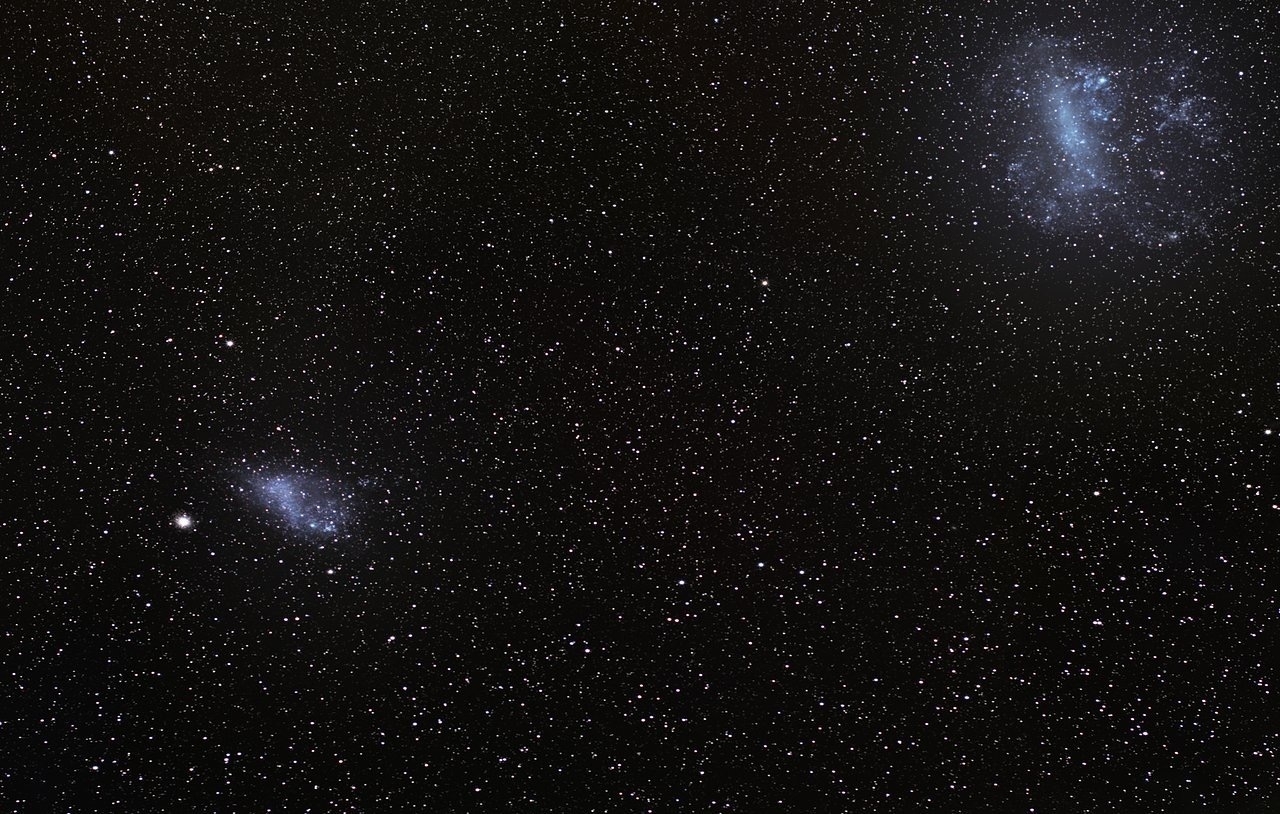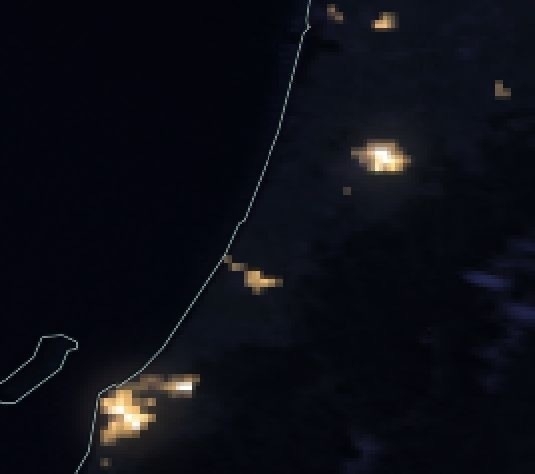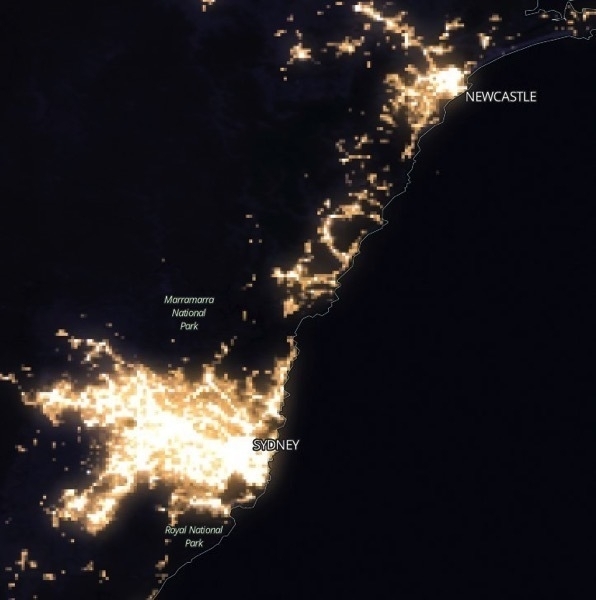Step outside on any dark clear night then look up and south. You should be able to see the Clouds of Magellan, two galaxies that orbit our Milky Way galaxy.

These and all the other stars we can see from Waikawa Beach are a treasure not available to many people on this planet. For a start, the Clouds of Magellan are only visible from the southern hemisphere. But the big problem is that light pollution, even in a small city like Wellington, makes them invisible to many people who think to look up at night.
We’re very lucky here that our skies are mainly dark, so we can see many stars that others have lost sight of.
I have blog buddies in other parts of the world who tell me they dream of one day travelling to a place where it's dark enough to see the stars…
In about 2017 NASA released night sky images of the Earth from space. Waikawa Beach came out really well for having a dark sky. You can see the lights of Waikanae and Paraparaumu, Levin, even Otaki and Otaki Beach in the screenshot below, but around here it's good and dark.

Compare that with Sydney for example, and all along that eastern coast in Australia.

Bright skies, like those in Sydney or Levin, mean people can’t see so many stars, are likely to suffer sleep disturbances, and animals and insects are very badly affected. In some parts of the world people can’t see the stars at all.
Dark skies, like those at Waikawa Beach, mean lots of stars and a healthier environment for all of us.
A dark sky is yet another of the taonga we enjoy at Waikawa Beach.
What can we do to help keep our skies healthily dark? It’s easy:
- Avoid having outside lights on at night unless they’re needed.
- Keep outside lights pointed downwards — there’s no point burning up money lighting up the sky.
- Avoid using lights that are brighter than they need to be.